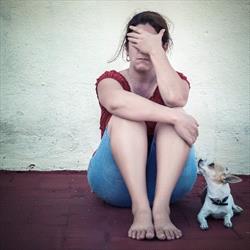Q: My 14-year-old dog passed away suddenly, and I’m worried about how my other dog will do. Is there anything I should do?
A: When a family dog dies, you may wonder how your other dog is feeling and if they understand. Some dogs may go into a deep depression, while others take little notice. Some pets are tightly bonded and notice their missing housemate, yet others may be affected by the change in routine, structure, and overall dynamics in the home.
What are some indicators of a grieving pet?
- A change in appetite
- Increased sleeping or lethargy
- Increased vocalization (barking and whining)
- Withdrawn behavior
- Lack of interest in walks
- Decreased interactions with people.
Keep your pet’s previous routine as consistent as possible, and do not make sudden changes. Most pets rely on predictability and consistency; changes increase stress. When you lose a dog, avoid deep cleaning the house or purging their belongings since this changes the environment. Your dog might have used the other bed, toys, or bowls, and these items represent normalcy and comfort for them.
If your dog was ill for a long time, you may have significantly changed your routine for them. Your other pets have also been living with this routine. Keep mealtimes, snacks, and walks on the same schedule but offer special treats or favorite foods if your dog is interested.
Be emotionally available. If your dog seeks attention, provide extra comfort. Maintain a calm environment and reward your dog for relaxing behaviors. Some dogs prefer their space, so always invite them into yours. If they want more walks or playtime, that can benefit you as well. Do things together that your dog enjoys, such as going for car rides, hikes, sniff walks, or just hanging out in the yard.
You may consider another pet if your dog is sociable and likes other animals. Although your dog may have been comfortable with their companion, this does not necessarily mean they will accept new pets. Consider if you have time to spend with both pets and if you can commit emotionally and financially to a new addition.
Each pet will grieve in their own unique way. In time, your dog should improve, but if their behavior is concerning or continues, a checkup with your veterinarian is recommended.
You may also be grieving, so remember to take care of your own emotional needs. Your dog may be feeling stressed because you are upset and acting differently. Online support groups, books, and counseling are available specifically for people grieving the loss of their pet.



